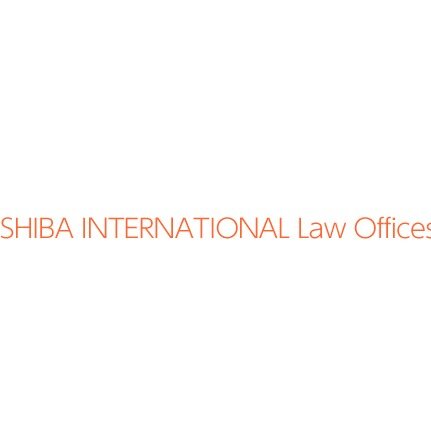Best Drug Crime Lawyers in Tokyo
Share your needs with us, get contacted by law firms.
Free. Takes 2 min.
List of the best lawyers in Tokyo, Japan
About Drug Crime Law in Tokyo, Japan
Drug crime law in Tokyo, Japan, is characterized by its strictness and the severity of its penalties. Japan’s approach to drug control is one of zero tolerance, and Tokyo, as the nation’s capital, is no exception. The possession, use, sale, or manufacture of controlled substances is illegal under the Narcotics and Psychotropics Control Law, the Cannabis Control Law, and the Stimulants Control Law. Medicine-related offences are covered under the Pharmaceutical Affairs Law. Any drug-related crime can lead to serious consequences, including long prison sentences and hefty fines.
Why You May Need a Lawyer
Legal help may be essential if you are under investigation for a drug-related offense, have been arrested, or are facing charges for possession, use, or trafficking. A lawyer can also be crucial when dealing with prescription medication issues, where legal substances in other countries may be controlled or banned in Japan. Seeking legal advice is recommended for understanding your rights, navigating the criminal justice system, potentially negotiating lesser charges, and ensuring the best possible defense.
Local Laws Overview
Key aspects of local laws relevant to drug crime in Tokyo include the following:
- Zero Tolerance: Possession of even small amounts of a controlled substance can lead to arrest and prosecution.
- Category of Drugs: Drugs are classified into different categories, with varying penalties. For example, methamphetamine and amphetamines under the Stimulants Control Law carry some of the harshest penalties.
- Controlled Substances: Includes, but is not limited to, stimulants, narcotics, cannabis, and psychotropic drugs without a medical prescription.
- Penalties: Penalties range from fines to long-term imprisonment and may include deportation for foreign nationals.
- Prosecution Process: Japan's conviction rate is high, and the legal process can be lengthy and complex.
- Suspension of Sentence: In some cases, a sentence may be suspended, but this is rare for drug offenses.
- Distribution and Manufacturing: Particularly harsh penalties are reserved for those involved in the sale or production of illegal drugs.
Frequently Asked Questions
What should I do if I am arrested for a drug-related crime in Tokyo?
Remain calm, do not resist arrest, and contact a lawyer as soon as possible. Avoid making any statements or signing documents until you have legal representation.
Can I be prosecuted for prescription drugs from my home country?
Yes, some prescription drugs that are legal in other countries are banned or require special permission in Japan. Always check before bringing medication into Japan.
What are the penalties for marijuana possession in Tokyo?
Even small amounts of marijuana can lead to arrest, with penalties including imprisonment and fines. The Cannabis Control Law is strictly enforced.
Are drug offenses in Japan tried by a jury?
Most criminal cases, including drug offenses, are tried by professional judges rather than a jury system.
Can I be drug tested without consent in Japan?
Law enforcement may require a drug test if they have reasonable suspicion of drug use. Refusal might be used as supporting evidence of drug use.
What is the statute of limitations for drug crimes in Tokyo?
Drug crime statutes of limitations depend on the seriousness of the crime but generally range from three to fifteen years.
Is possession of drug paraphernalia illegal?
While not specifically targeted by laws as in some countries, possession of paraphernalia might be considered circumstantial evidence of drug use or intent to use.
Will a drug crime conviction in Tokyo affect my immigration status?
A drug crime conviction can severely impact your immigration status, leading to potential deportation and re-entry bans.
Are there diversion programs for drug offenders in Tokyo?
Japan has limited diversion programs. Most drug offenses are criminally prosecuted rather than diverted to treatment programs.
What kind of legal defenses are available for drug crime accusations?
Legal defenses may include challenging the legality of searches and seizures, issues of intent, and the validity of the evidence. A lawyer will tailor defense strategies to the specifics of your case.
Additional Resources
For those in need of legal advice, resources include the Japan Federation of Bar Associations, local legal aid services, and the Tokyo Public Law Office. Embassy and consulate services may offer assistance and provide lists of local attorneys for foreign nationals.
Next Steps
If you need legal assistance for a drug crime, you should seek a Japanese criminal defense lawyer with experience in drug-related cases. Schedule a consultation to discuss your case, ensure that you fully understand the charges against you, and explore your legal options. It is critical to take prompt and informed action to navigate the legal challenges that arise from drug crime accusations in Tokyo, Japan.
Lawzana helps you find the best lawyers and law firms in Tokyo through a curated and pre-screened list of qualified legal professionals. Our platform offers rankings and detailed profiles of attorneys and law firms, allowing you to compare based on practice areas, including Drug Crime, experience, and client feedback.
Each profile includes a description of the firm's areas of practice, client reviews, team members and partners, year of establishment, spoken languages, office locations, contact information, social media presence, and any published articles or resources. Most firms on our platform speak English and are experienced in both local and international legal matters.
Get a quote from top-rated law firms in Tokyo, Japan — quickly, securely, and without unnecessary hassle.
Disclaimer:
The information provided on this page is for general informational purposes only and does not constitute legal advice. While we strive to ensure the accuracy and relevance of the content, legal information may change over time, and interpretations of the law can vary. You should always consult with a qualified legal professional for advice specific to your situation.
We disclaim all liability for actions taken or not taken based on the content of this page. If you believe any information is incorrect or outdated, please contact us, and we will review and update it where appropriate.









